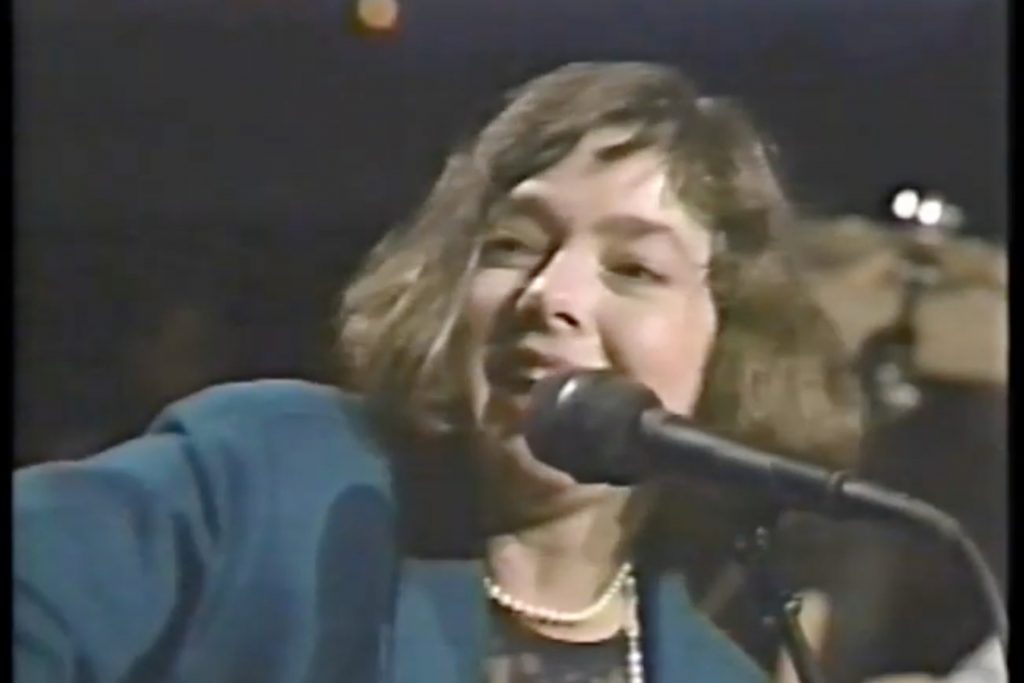
Nanci Griffith: Her Essential Songs
From 1978 until her retirement in 2013, Nanci Griffith, who died August 13th at age 68, included numerous cover songs in her repertoire from writers as diverse as Nick Lowe and Paul Carrack (“Battlefield”) to Guy Clark (“Desperados Waiting for a Train”) and Julie Gold, whose “From a Distance” had been roundly rejected until Griffith became the first to record it. She even once covered the IndieLands’ “No Expectations” on Austin City Limits.
But it was Griffith’s original material that helped boost the careers of Kathy Mattea, Suzy Bogguss and many others. In 1994 on the album Dulcinea, Toad the Wet Sprocket singer and songwriter Glen Phillips paid homage to the lyrical genius of Griffith with a sweet and gentle folk tune simply titled “Nanci.” On the tribute that also acknowledges Loretta Lynn, one of Griffith’s chief inspirations, Phillips sings, “I can’t believe you, you bend your words like Uri Geller’s spoons.” It’s a fitting assessment of Griffith’s wide-ranging folk-country-pop sensibilities and her knack for crafting penetrating lyrics imbued with the transformative properties of a philosopher’s stone. Here then are five Nanci Griffith songs that deserve repeat listens.
blogherads.adq.push(function () {
blogherads
.defineSlot( ‘medrec’, ‘gpt-dsk-tab-country-article-inbody1-uid0’ )
.setTargeting( ‘pos’, [“mid-article”,”mid”,”in-article1″,”btf”] )
.setSubAdUnitPath(“music//country//article//inbody1”)
.addSize([[300,250],[620,350],[2,2],[3,3],[2,4],[4,2]])
;
});
“Love at the Five and Dime” (1986)
Kathy Mattea notched her breakthrough hit with this swirling chronicle of a couple’s enduring love the same year Griffith released her last Philo/Rounder LP, The Last of the True Believers, before moving to MCA Nashville. Co-produced with Jim Rooney, the album deservedly landed among the year’s most acclaimed releases. Subsequent live renditions of this tune would both emphasize its intimacy and inspire concert-going couples to dance in the aisles.
“Once in a Very Blue Moon” (1986)
Of her many covers, this Pat Alger- and Gene Levine-penned ballad showcases Griffith at her heartbreaking, vulnerable best. There’s a steely resolve woven into the song’s delicate fabric, and it’s hardly surprising that this was followed closely by a Dolly Parton version. It’s a testament to Griffith’s artistry that a superstar’s treatment of the same material couldn’t eclipse her version (a feat that was, arguably, achieved again when Bette Midler cut her own version of “From a Distance” for Beaches.)
“Outbound Plane” (1988)
Griffith hit her creative stride at MCA with the uniformly excellent 1988 album Little Love Affairs, which featured a resolute rendition of this tune she co-wrote with folk legend Tom Russell. Later the lead track and a Top Ten hit from Suzy Bogguss’ platinum-selling 1991 album Aces (a record that also featured cuts from writers Cheryl Wheeler, Beth Nielsen Chapman, Ian Tyson and Kim Carnes), this one sent Griffith’s commercial pursuits soaring. Still, she managed to keep her writing grounded in truth.
“Listen to the Radio” (1989)
An irresistibly cheeky kiss-off and a forward-looking road trip, all set to a hard-charging honky-tonk beat with lyrics that name-check both Loretta Lynn and Merle Haggard. Griffith hits the highway, leaving a confounded good ol’ boy behind to fend for himself as she sets off for a brighter future. Storms, the album that featured it, would be her penultimate MCA effort and the last before a shift to more pop-fueled material (her Nineties folk cover-populated LPs notwithstanding), but she gave it all one hell of a send-off.
“It’s a Hard Life (Wherever You Go)” (1989)
For the Texas native who proudly sported a vintage LBJ button and would often note that his legacy as president was more than just the Vietnam War, Griffith took his Great Society message throughout the world, distilling its core values into one of her most affecting compositions, also featured on Storms. A Baby Boomer whose TV flashed with indelible images of “Disney and Cronkite and Martin Luther (King),” Griffith saw the best — and worst — of human behavior throughout the world and recounted incidents in Belfast, Chicago and within herself, that illuminated just how far any society is in danger of falling in the absence of compassion — and hope.




